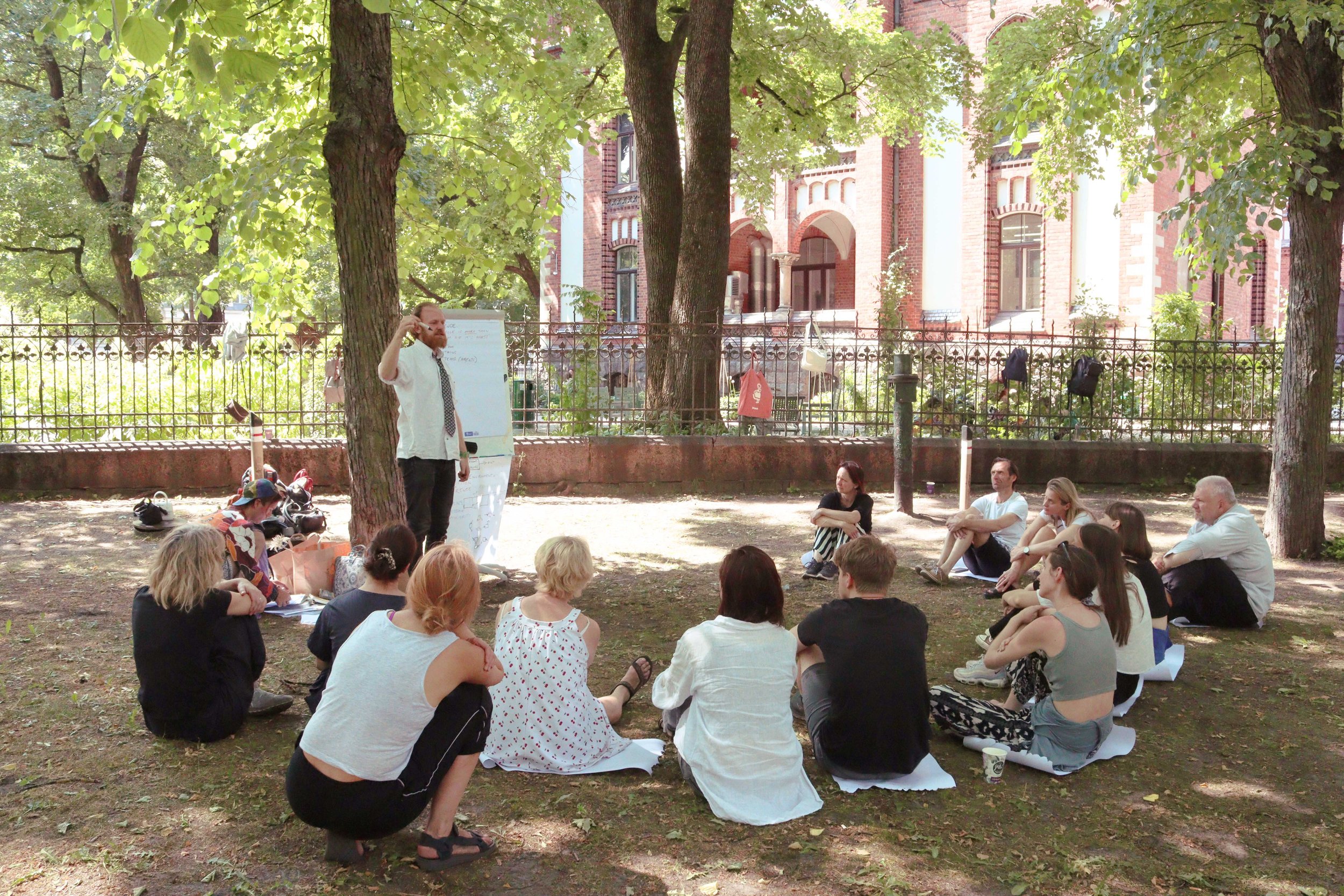
Operating Manual for Systems Thinking
We were taught to see the world as a machine — predictable, controllable, made of parts. This mechanistic worldview has shaped everything: education, science, economics, governance, even how we see ourselves and each other. It assumes linearity, hierarchy, and cause-and-effect. But that story is no longer plausible. The crises of our time, from climate chaos, AI, social and ecological collapse, are not linear problems. They are complex, dynamic, and entangled.
To meet them, we need a shift in perspective, a new paradigm. One that sees relationships, not parts. Feedback, not control. Systems literacy is the skill of living in a world that is messy, entangled, and teeming with lively agents: fungi, algorithms, microbes, markets. All learning, adapting, and exceeding our control. As Stephen Hawking remarked, “I think the 21st century will be the century of complexity.”
This workshop is about learning to see the world through a systems perspective. Such a perspective gives us the ability to play with and thrive in complexity rather than be undone by it. We’ll learn how to spot hidden feedback loops, understand why emergence trumps control, and how plasticity, creativity, and play become survival skills in an age of disruption and uncertainty.
We invite you to rewire your habits of thought, to see relationships where you once saw things, and to navigate the living systems around you with more imagination and play. By seeing the world as a living network of systems, you gain a practical edge: the ability to thrive where others see only chaos. The workshop equips you with the basics of systems thinking, and a new way of seeing contingency, connection, and life itself.
In CLEA ArtScience, we are developing novel methods to make complexity and systems theory understandable, engaging, and transformative through a combination of visual examples, illustrations, metaphors, and hands-on activities and games.
What you’ll learn:
Learn key concepts of complexity, systems thinking, and cybernetics.
Learn to spot the difference between a complicated system and a complex system.
Experience the dynamics of complex adaptive systems through interactive games.
Understand the role of feedback, emergence, learning and adaptability in systems.
Learn how to cultivate the conditions for emergence to happen organically.
Can understanding systems help us live more wisely in a world of uncertainty?
Who it is for?
This workshop is accessible to all backgrounds and ages — no prior knowledge required. We calibrate depth, pace and vocabulary to the room.
Duration:
From a 3-hour primer, to a 2-day intensive workshop, to a multi-day course.
Language options:
English
Format:
In Person / Online
